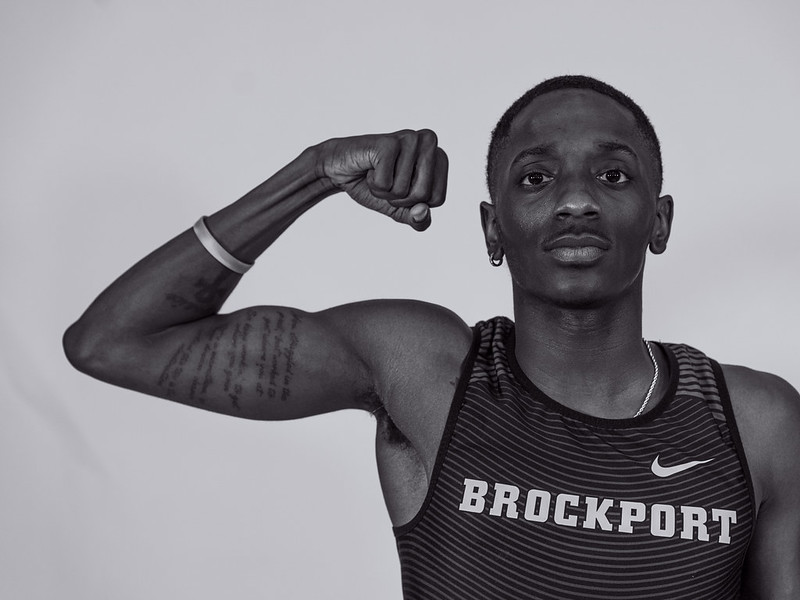By: Lauren Higgins
Control, commitment, challenge and confidence are the 4 C’s of mental toughness. It is a concept coaches teach their athletes in order for them to perform at their full potential. To many athletes, mental toughness equals mental health.
Athletes are expected to be mentally tough. SUNY Brockport sophomore Rileigh Gray is one of those athletes. She uses the 4 C’s of mental toughness to stay strong while competing on the field.
“Challenge, commitment and control are all things I use, but confidence is one thing I am still trying to work on. I challenge myself on the field by pushing myself every day, I am committed by showing up to every practice and game, and I take control over how I want to perform,” she said.
Gray is a member of Brockport’s field hockey program. She believes that athletes are able to become mentally tough while also showing a weaker side.

“When it comes to athletics, I believe it is more acceptable to show your emotions and struggles during drills or practices because that is the time for improvement,” said Gray.
Outside of athletics, Gray is majoring in biology as well as minoring in pre-professional health. Her schedule fills up quickly because of class, homework and field hockey, but she has developed strategies to keep herself mentally healthy.
“I believe it is most important to have time to yourself outside of academics and athletics. During that time, I like to de-stress by watching movies and doing coloring books. I also like to stay organized by keeping a large monthly calendar of all of my assignments. Time management skills are key,” she said.
Gray isn’t the only student-athlete taking time to herself. Brockport senior Egypt Page says it is essential to create a separate mental space for yourself apart from sports and academics.
“Spending more time outside of what I normally do is what helped me get my mind right. Last year I worked at Seton Catholic in Brighton and seeing all of the kids there would take my mind off of all of the things at hand, really,” said Page.
Page is also a student-athlete. He is a member of Brockport’s track and field team.

Throughout the year, professional athletes such as Simone Biles, Naomi Osaka and Dak Prescott opened up to the media about their struggles with their mental health.
Gray hopes that this will encourage other athletes, professional or not, to seek help if they are struggling.
“I think that the recent media coverage of professional athletes coming out with their mental health struggles has changed the way mental toughness is perceived. It is almost like it is mentally tough to come out and admit that you have your own struggles,” said Gray.
The SUNY Brockport Hazen Counseling Center has mental health professionals available to those in need, but Page says he believes it would be helpful if every sports team had its own set of mental health counselors.
“Having a sports mental health counselor would be great for every team just so you know you have someone there to check up on you. Having someone that is headstrong in your sport and knows what a person might go through would be very beneficial,” said Page.
According to Athletes for Hope, 33% of all college students report experiencing symptoms of depression, anxiety, or other mental health conditions. Among that group, 30% seek help, but out of college student-athletes, only 10% do.
Student-athletes are under constant pressure balancing their commitment to a sport, academics and a social life.
Signs that they may be at risk include:
- changes in sleep patterns
- mood swings
- loss of interest in things they once enjoyed
- underperformance in their sport
- eating changes
- negative thinking
Athletes are human, too. While they can challenge themselves and show commitment, control and confidence, they are allowed to show emotion. They are more than just an athlete.
If you or someone you know are in need of support, the National Suicide Prevention Hotline and SAMSHA Referral Treatment Hotline are available 24/7.






















